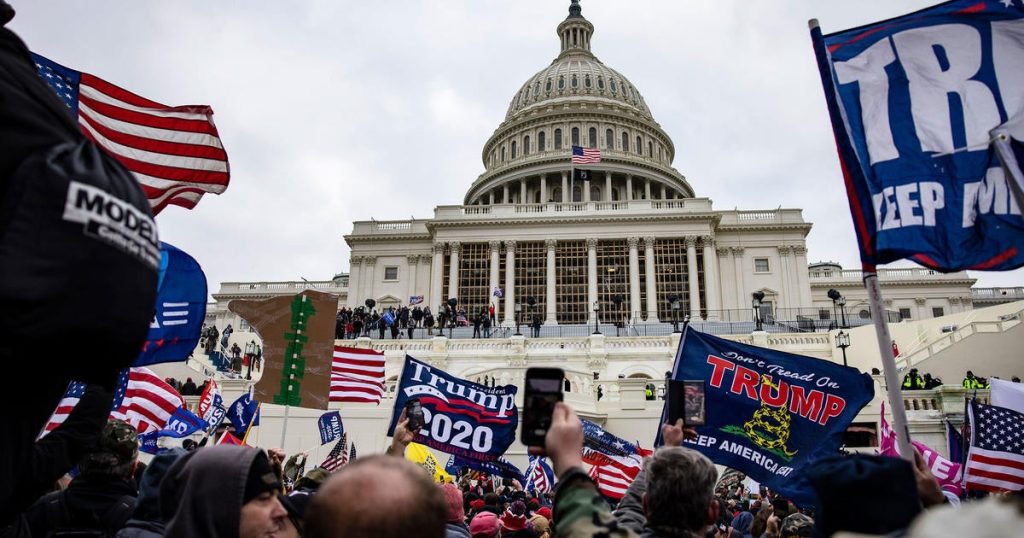Several defendants accused of participating in the Capitol attack on January 6, 2021, are requesting permission from the courts to return to Washington, D.C., on January 20 to attend the inauguration of President-elect Donald Trump. Despite facing felony or misdemeanor charges, some defendants argue that they are not a threat to public safety and should be allowed to attend the event. However, the Justice Department has opposed some of these requests, citing concerns about the safety of Capitol Police officers and the potential for further violence.
One defendant, Christopher Belliveau, who is accused of deploying bear spray against police during the Capitol attack, has pleaded not guilty and is seeking permission to attend the inauguration. In response to his request, federal prosecutors argued that allowing Belliveau to travel to Washington, D.C. would put Capitol Police officers in danger, as his past behavior indicates a willingness to engage in violence. Belliveau’s attorneys maintained that he is presumed innocent until proven guilty and should not be treated as inherently dangerous solely based on the charges against him.
Another defendant, Cindy Young, who was found guilty on four criminal charges in August, has also requested permission to travel to Washington for the inauguration. Young’s attorney argued that she has complied with her conditions of release for over a year and poses no threat to the community. However, prosecutors opposed Young’s request, citing her past statements endorsing retribution against those involved in the January 6 prosecutions as a reason for concern. The judge has not yet ruled on Young’s request.
William Pope, a Jan. 6 defendant representing himself, also asked the court for permission to attend the inauguration, stating that he had initially declined an invitation but felt it would be inappropriate to turn down the request. Pope, who has pleaded not guilty and is scheduled for trial in May, did not specify who invited him to the inauguration. Trump has promised to pardon some of those charged or convicted in connection with the Capitol attack, with approximately 1,000 defendants already pleading guilty and more arrests expected.
Overall, the issue of allowing defendants accused of participating in the Capitol attack to attend the presidential inauguration raises concerns about public safety and the potential for further disturbances. While some defendants argue that they should be allowed to attend the event based on their innocence until proven guilty, prosecutors and the Justice Department have opposed these requests, citing concerns about the defendants’ past behavior and the safety of law enforcement officers. The decisions of the courts regarding these requests will likely have implications for future cases related to the Capitol attack and the overall security of Washington, D.C. during significant events.


